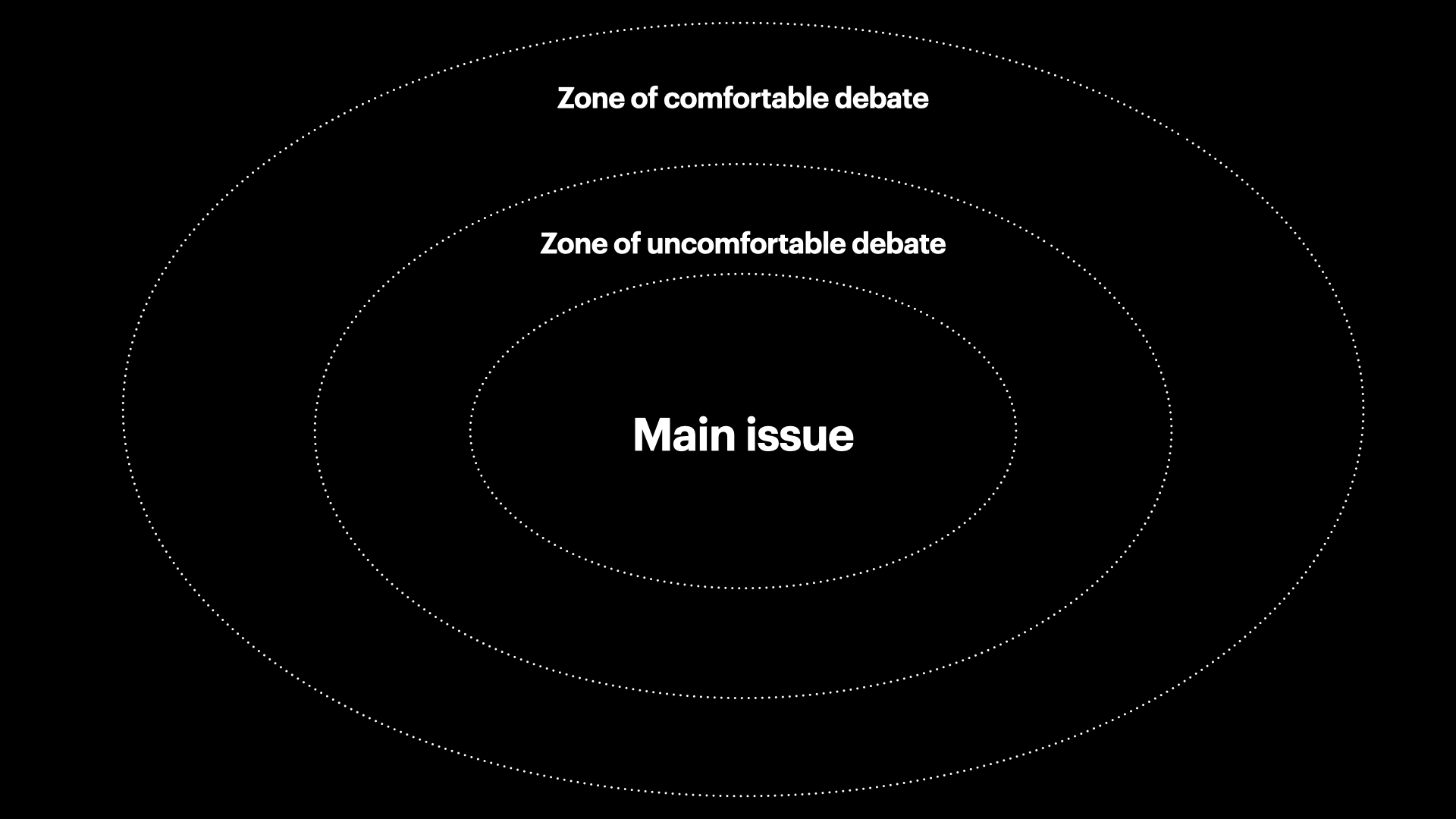-
The purpose of UX Design — why product managers need UX designers and design leaders
Industries and trends ebb and flow. I think I might have been working during a peak for “design thinking”. Organisations like IDEO and Apple helped to establish design as the differentiating factor between successful organisations and the rest. But, in recent years I’ve seen a shift. The faith placed in “design thinking” now seems diverted into…
-
Putting the audience first to boost your communication effectiveness
Summary: When we communicate we “encode” what we want to say based on our priorities and preferences. But the people we’re talking to also have preferences, knowledge and assumptions which can filter and alter what they actually hear. By thinking about our audience — and the preferences which shape how they receive and participate in…
-
How to lead design discovery…
Last month I shared a critique of some ways people describe and structure design processes. I also shared a tool I’ve developed to direct “discovery” efforts. I wanted to share more about that tool and talk about why I think confidence is a good measure of success for your “discovery” processes. Creative leadership is about…
-
An evolution of the Double Diamond
When we use ambiguous language to describe design, we make designing even harder. Design projects can be full of ambiguity, particularly when they’re focused on innovation. I’ve recently written about the limitations of the double diamond and suggested some alternative models. I argued that the Double Diamond is a good place to start when you’re…
-
Alternatives to the Double Diamond
If we always automatically reach for the Double Diamonds to start conversations and answer questions about design, we might miss opportunities to say something more useful.
-
The limitations of the Double Diamond
I have a love/hate relationship with the Double Diamond. I love the way it communicates two key ideas about design — (1) that design is as much about defining and creating boundaries around problems as it is about creating solutions and (2) design benefits from a dialogue between thinking styles, in this case Divergent creation/discovery and Convergent…
-
Consistently describing design
I’ve been writing about the design process, suggesting that different models can give us different perspectives on what we’re doing when we’re designing. I’ve suggested that design is a process of translation and balance – transforming ideas between abstract forms to concrete instantiations that people can experience. In my last post I used the metaphor…
-
The design process and the scaffolding within
In a post last week, I shared a definition for design. I said: “Design is the translation of intent into experiments designed to generate value.” That post is about how information architecture is the stable set of rules which govern the relationships within a design to bring internal coherence. Information architecture means designs are easier…
-
Why is “information architecture” at the centre of the design process?
Let’s get two things straight — namely what I think “information architecture” and “design” are. I think both names suffer from a problem. They describe both an output and a process. The decisions that you make as you design or architect change the product or service that you’re working on. How you make the decisions is the process…
-
The Zone of uncomfortable debate

This is a talk I filmed for an event in November 2022. It focuses on the challenges of effective collaboration and covers ideas around: – the zone of uncomfortable debate – humble inquiry – crucial conversations – and negotiation tips from Never Split the Difference. It’s all strung together from a memory I have of…
-
Better Bossing: Lessons from Adaptive Leadership

Which ideas from adaptive leadership can we adopt to help us connect and adapt to become a better boss? As I’ve written about becoming a better boss I’ve developed a simple model to describe the factors that might affect the relationships between a leader or manager and their colleagues. The model describes how factors of…
-
Better Bossing: Social Capital

Three concepts to help us identify where and how we might earn, store and spend social capital to make us and our teams more effective.
-
Better Boss Series: Trust

Why is trust so important and how do you build and maintain it?
-
Announcing: The Guide to Being a Better Boss

Everyone deserves a great boss. In this series, Dan Ramsden shares what he’s learned to help him become a better boss.